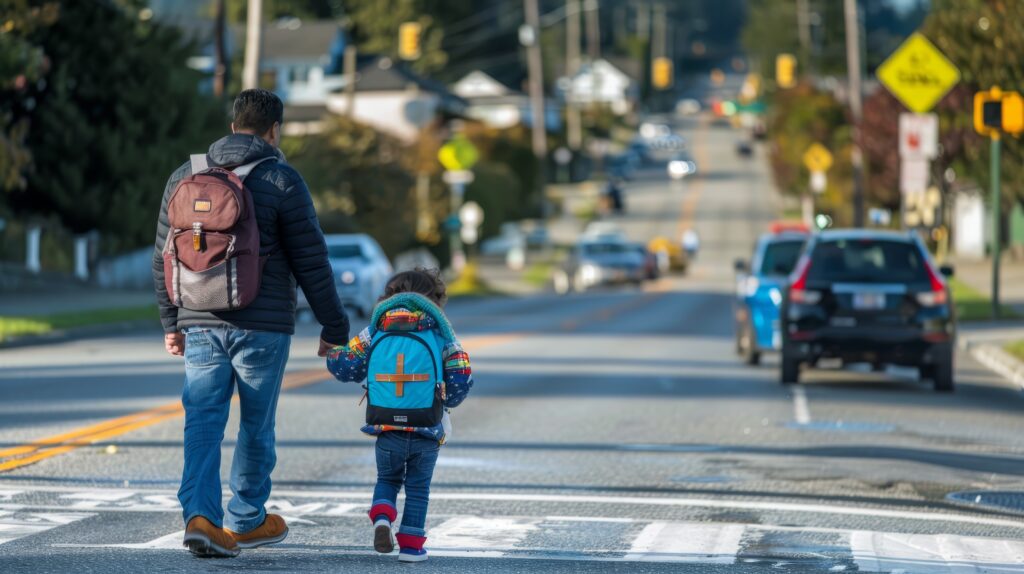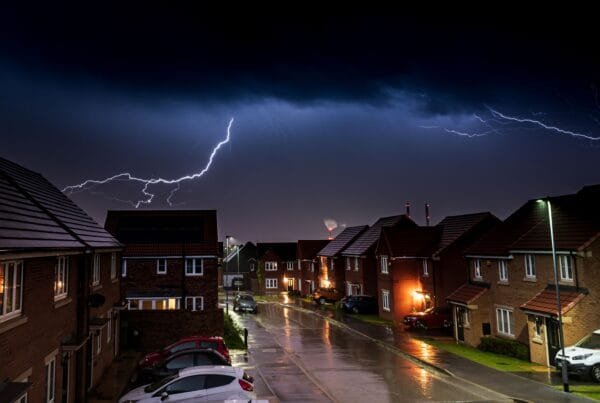The Responsibility of Every Parent
Nothing has the potential to rock your world quite like becoming a parent. Overnight, you must transform from an inherently self-absorbed individual to one who bears the ultimate responsibility for another human life.
Thankfully, we are encouraged by our DNA and society to become providers for our children. Most of us take on this role with open arms, working hard to meet our children’s needs. However, we often fail to see that being a provider for our families is not enough. In a world full of threats, we must also be willing to take on the role of a protector.

Parents in the 21st century don’t have it easy. Sure, we benefit from modern conveniences that make daily life more comfortable than ever. But at the same time, social and economic pressures have produced a difficult landscape for families. Inflation is up, grocery bills are sky high, and home ownership has never been less affordable. Many households are left with little choice but to bring in dual incomes to pay the bills, or have a sole provider work long overtime hours.
We are willing to work hard and sacrifice so that we can provide the best possible lives for our kids. We give them shelter, clothing, food, education, and spend all of our available time with them. But what happens if an unexpected crisis hits out of the blue? Being a good provider is enough to get you by on most days, but on the day it counts, you will also need to be a protector.
Your family could face a violent encounter at a public venue. Your child could be critically injured in a freak accident. Or the power grid could go down for weeks, leaving you without access to groceries and clean drinking water.
If push comes to shove, you’ll need the right mindset and the right skills to be a protector.
Taking on a Protector Mindset
A protector is vigilant, skilled, and ready to defend or save a life. In our society, police officers, firefighters, and paramedics are rightfully seen as protectors. But whether it’s a violent encounter, medical emergency, or a large-scale disaster, first responders are minutes away – at best – when seconds count. Recognize that first responders “respond” to emergencies after they happen.

In a crisis involving your family, the responsibility of being a protector will fall to you first and foremost. You can’t assume that someone with more training will be available in a timely manner when your family’s safety and well being is on the line.
Being a protector of your household requires a commitment to developing the proper mindset. It’s hard to be a protector if you are so preoccupied with daily life tasks that you let down your guard. A protector must always ask him or herself, “What could go wrong?” Find the threats, and plan accordingly.
Threats can be short-term / present (personal security at a gas station) or long-term / future (a natural disaster leads to grid-down).
To start, think about your journey throughout the day and find the times when your family is most exposed. Examples could include entering and exiting your family vehicle, and entering and exiting the home. These are referred to as “transitional spaces” where a bad actor could easily catch you off guard.

What kind of public places do you frequent? Start perfecting the art of situational awareness – being aware of your surroundings and recognizing signs that something isn’t right. If you notice something or someone that may be a threat, don’t ignore it – react and get your family out of harm’s way.
What about larger scale threats to your family’s well being? If there was no food or clean drinking water for several weeks, could you sustain your family? Do you have a plan for evacuating if the area around your home becomes unsafe or unlivable? Do you carry a quality first aid kit, and do you know how to use it in an emergency?
While this may all sound overwhelming, you don’t have to accomplish everything overnight. The first step is to take on the protector mindset and start assessing threats to your family. By simply having your guard up and thinking through possible scenarios, you’ll be on the right track.
Parting Thoughts
You absolutely do NOT need to be a tough guy or come from a military background to be a protector for your family. Moms, dads, grandparents, guardians – anyone can make the shift from provider to protector.
By thinking through worst-case outcomes and staying vigilant, you can rest easier knowing that you’ll be ready if and when the time comes.



